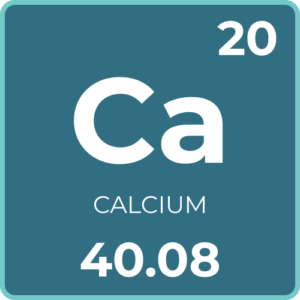We all know that for strong bones, people need plenty of calcium. For plants, it’s a little different. However, it’s no less important for plants than for people. Calcium also helps plants build stronger cell walls and structures, including plant tissues.
Calcium is also important for plants to grow a strong, healthy root system, and even absorbing nitrogen. It isn’t considered one of the top 3 nutrients (nitrogen, phosphorus, and potassium), although plants still need enough of it.

Critical roles of calcium:
- Prevents blossom end rot
- Aids root system development
- Helps build strong cell walls
- Aids in nutrient uptake and transport
Signs of calcium deficiency:
- Leaves curl inwards
- Poorly developed roots
- Roots not taking in nutrients properly
- Stunted growth
- Dark or blacked appearance on leaves
- Blossom end rot
Calcium affects pH
One thing you should know about calcium for plants is that it also affects pH, or potential hydrogen. Essentially, pH tells you whether something is acidic or alkaline. That means that whether you grow in soil or water, the pH level should be within your plants’ ideal ranges.
The more calcium an environment has, the more likely it is to be alkaline. A lack of calcium often shows in more acidic environments. As a result, a lot of fertilizers and nutrient solutions use extra calcium to balance out pH. In these cases, calcium acts as a buffer.
Other nutrients can affect calcium absorption
While calcium can affect the alkalinity of soil and water, other elements can affect how plants interact with calcium. That’s because calcium can pair with other molecules to create different compounds. This can be either an advantage, or a disadvantage. If it pairs with another element to create a compound that plants can’t absorb, they still might end up with calcium deficiency.
Typically, this only happens when you add too much of the other elements. In particular, you should pay attention to how much magnesium and potassium you add. Not only can an imbalance affect how much calcium plants can absorb, but it also affects the absorption of the other nutrients.



